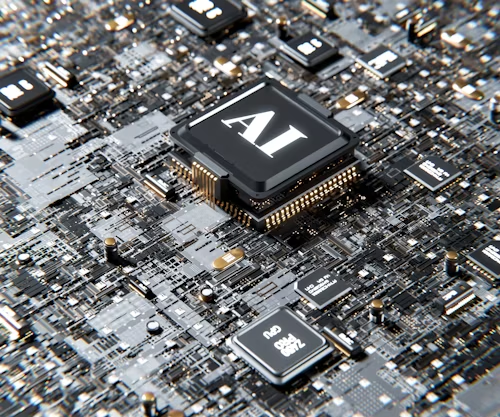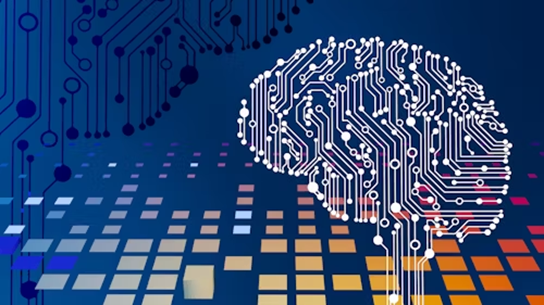Contents
- 1 Understanding Intelligent Automation Services
- 2 Key Components of Intelligent Automation Services
- 3 1. Artificial Intelligence (AI)
- 4 2. Robotic Process Automation (RPA)
- 5 3. Cognitive Automation
- 6 How Intelligent Automation Services Can Transform Your Business
- 7 1. Enhanced Operational Efficiency
- 8 2. Strategic Decision-Making
- 9 3. Improved Customer Experience
- 10 Bottomline
Intelligent automation services, which perfectly blend automation and AI, emerge as a revolutionary force in the dynamic world of contemporary business. These services, which are revolutionizing conventional operational paradigms, cover a wide range of technology, such as robotic process automation and machine learning.
Their capacity to improve profitability, cut expenses, and improve the state of business as a whole is what gives them their revolutionary potential. By utilizing cognitive automation and data analytics, companies can guarantee compliance, make well-informed decisions, and provide unmatched customer care.
We will examine the great importance of intelligent automation services in this article, as well as how implementing them can empower workers, spur creativity, and set up businesses for long-term success in the always-changing landscape.
Understanding Intelligent Automation Services
Exploring intelligent automation services means getting to the core of smart technology and supporting decision-making in activities directed with the help of automation. On a deeper level, it means that the technology is no longer only rule-based, but it is a cognitive, adaptive system instead.
Machine learning and natural language processing allow systems to get data experience and improve the communication function. RPA (Robotic Process Automation) executes routine tasks, while cognitive automation – human-like decision-making and reasoning – mimics cognitive processing.

Key Components of Intelligent Automation Services
There are certain key components of intelligent automation services, some of which are listed below: –
1. Artificial Intelligence (AI)
AI, which powers intelligent automation solutions, is to be understood as the particular machine cognition feature that is able to synthesize human thinking. Through machine learning, AI nurtures systems’ vice to learn from data, respond to changes, and make critical decisions.
Nuclear language processing is an improvement in communication through cognitive computing. On the contrary, it allows for more problem-solving. In the evolution of automation, AI competence transcends toward forward-thinking and interactive processes that augment efficiency and strategic decision-making.

2. Robotic Process Automation (RPA)
Traditional workflows are being revolutionized by robotic process automation (RPA), which is a crucial component of intelligent automation services. RPA uses software robots to automate repetitive, rule-based operations, freeing up human resources for more important projects.
Virtual robots are designed to mimic human interactions with computer systems; they can be used for customer support, data entry, and invoice processing. RPA guarantees round-the-clock task execution in addition to improving operational efficiency by decreasing mistakes and processing times.
Due to its adaptability, businesses can quickly boost their processes, which promotes agility. RPA essentially drives productivity, cost reductions, and overall operational excellence by acting as a catalyst for company transformation.
3. Cognitive Automation
Situated at the core of intelligent automation services, cognitive automation combines artificial intelligence with human-like cognitive processes. With cognitive automation, machines comprehend, learn from, and make judgments based on unstructured input, in contrast to traditional rule-based automation.
This technology combines pattern recognition, natural language processing, and sophisticated algorithms to mimic human cognition. Cognitive automation uses experience to learn from complex, non-routine activities and understand context.
It is a potent tool for companies looking to improve decision-making, offer individualized experiences, and smartly negotiate the intricacies of the market environment. Its applications range from customer service interactions to data analysis.

How Intelligent Automation Services Can Transform Your Business
Intelligent automation services can help you transform your business in various ways, some of which are listed below: –
1. Enhanced Operational Efficiency
One of the main benefits of intelligent automation services is enhanced operational efficiency, which refers to business process optimization for maximum performance. Efficiency is greatly increased by automating repetitive operations and lowering manual errors.
Task execution is made faster and more accurate by streamlining procedures that previously required time and resources. Employee productivity is increased by this increased efficiency, which also frees them up to concentrate on strategic projects.
As a result, the company becomes more agile and is better positioned to succeed in a competitive environment where quick judgments and flexibility are critical.
2. Strategic Decision-Making
Strategic decision-making that is based on the attributes of intelligent automation services, such as data-backed analytics and machine learning, points to the integration into the organizational core of management decisions.
This strategy aims to derive insights from large data and further develop predictive models using analytic and machine learning algorithms. The effect of this collaboration is intelligent decision-making that completes the picture of business goals.
When harnessing big data in real-time, companies can preemptively adjust their strategies, take advantage of emerging market openings, and optimize their business in an adapting environment.
3. Improved Customer Experience
Intelligent automation services redefine customer experience as one of the greatest advantages, reported now not by automated systems but by their users.
AI and automation advancement helps organizations have tailored, streamlined, and fast, as well as responsive institutions. These technologies create opportunities for proactive consumer engagement so that problems are identified early enough and solved on time, leading to enhanced customer experience.
Automation in processes frees busy human staff from simple interactions, like inquiries to support, making the customer experience smooth and enjoyable. This effect is an increase in customer loyalty, a good perception of the brand, and dominance in a market where people-oriented is crucial.

Bottomline
With previously unheard-of possibilities for expansion, effectiveness, and creativity, intelligent automation services mark a paradigm shift in how companies run. It takes a comprehensive reevaluation and redesign of business processes to fully embrace this disruptive technology rather than just adopting a collection of tools.
Using intelligent automation services wisely can give businesses a competitive advantage and establish them as leaders in their respective fields. There are many benefits for those who are willing to take this revolutionary road, but the path toward digital transformation through automation is both thrilling and challenging.
So, seek advice from experts to walk on this challenging path efficiently.

